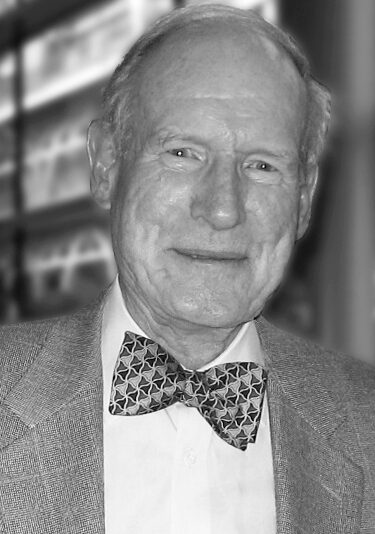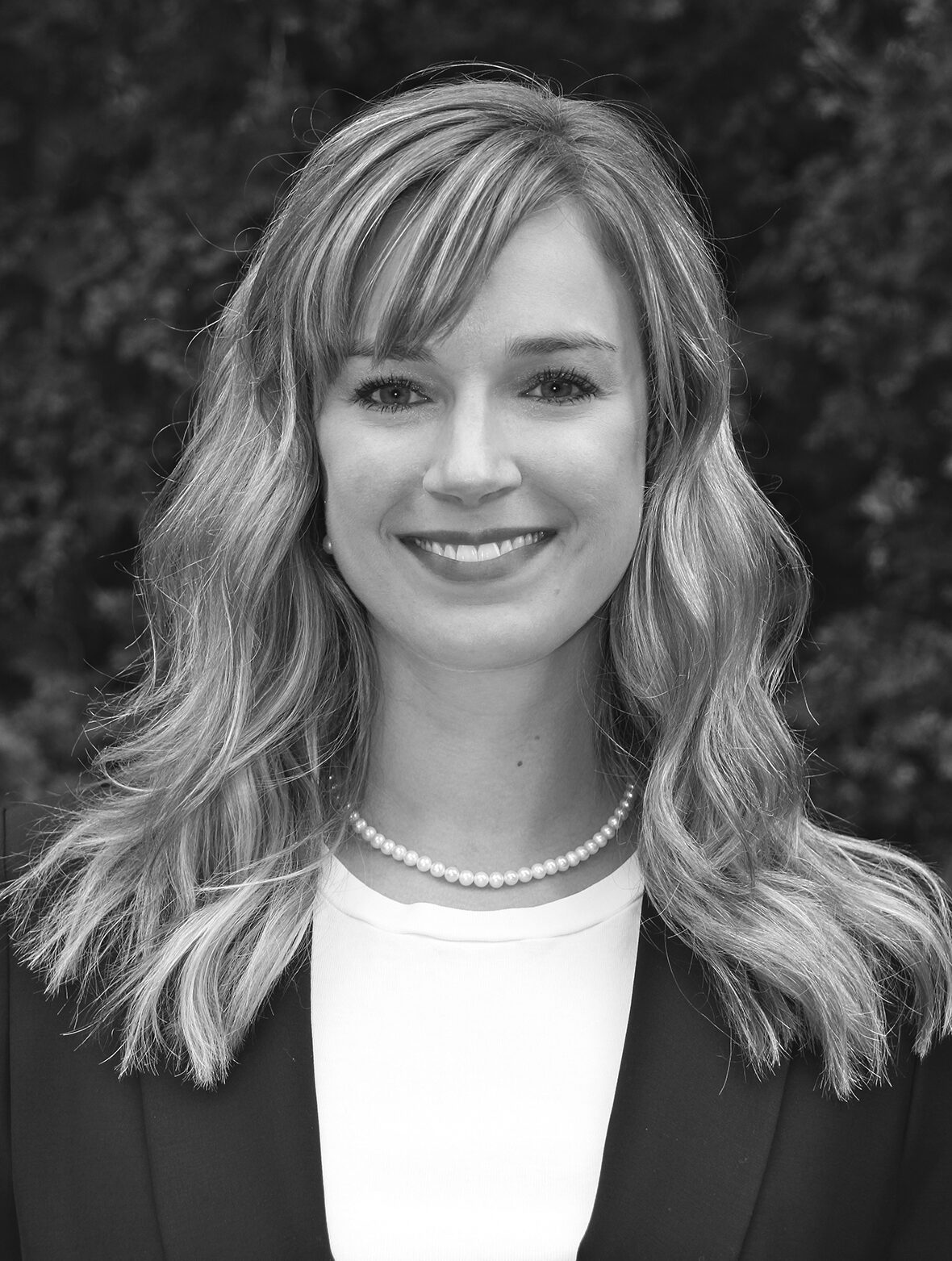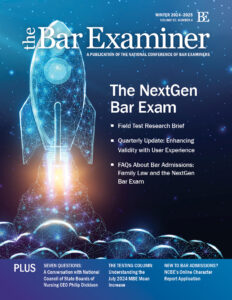This article originally appeared in The Bar Examiner print edition, March 2014 (Vol. 83, No. 1), pp. 62–68.
By Fred P. Parker III and Jessica GladBar Admission
Undocumented immigrants
In re Sergio C. Garcia on Admission, 58 Cal. 4th 440, 315 P.3d 117 (CA 2014)
In a case of first impression, the California Supreme Court has granted a law license to an undocumented immigrant.
Sergio Garcia was born in Villa Jimenez, Mexico, in 1977. He was brought into California without documentation when he was a toddler. Garcia moved back to Mexico at age 9 but returned to California with his parents in 1994, when he was 17. His father subsequently applied for an immigrant visa on Garcia’s behalf. The petition was accepted in 1995; however, because of a large backlog of persons seeking immigration visas, Garcia’s application for lawful residency is still pending.
In the meantime, Garcia attended school in California. He graduated from high school and college and, in May 2009, received a law degree from Cal Northern School of Law. Garcia applied for admission to the State Bar of California and listed his immigration status as “pending” on his application. He passed the California Bar Examination in July 2009, and the Committee of Bar Examiners (Committee) determined that he possessed the requisite moral character to practice law in the state. The Committee recommended Garcia for admission but questioned whether an undocumented immigrant could be admitted to the State Bar in light of 8 U.S.C. § 1621, which generally restricts an undocumented immigrant’s ability to obtain a professional license unless allowed by state law.
The Supreme Court issued an order to show cause to address this issue. Shortly after oral argument, however, a new statute, California Business and Professional Code § 6064, was signed into law with a specific subsection, subsection (b), authorizing the Supreme Court to admit as an attorney at law “an applicant who is not lawfully present in the United States [who] has fulfilled the requirements for admission to practice law . . . .” Supplemental briefing was ordered to address the impact of section 6064(b) on the issues presented, and the case was resubmitted to the Court for a determination.
On January 2, 2014, the California Supreme Court issued a unanimous decision granting the Committee’s motion to admit Garcia to the State Bar. The Court stated:
The new legislation removes any potential statutory obstacle to Garcia’s admission posed by section 1621, and there is no other federal statute that purports to preclude a state from granting a license to practice law to an undocumented immigrant. The new statute also reflects that the Legislature and the Governor have concluded that the admission of an undocumented immigrant who has met all the qualifications for admission to the State Bar is fully consistent with this state’s public policy, and, as this opinion explains, we find no basis to disagree with that conclusion.
The Court rejected two policy arguments advanced by amicus curiae opposing Garcia’s admission to the State Bar. First, amicus curiae argued that undocumented immigrants cannot properly take the attorney oath of office promising to “support the Constitution and laws of the United States” because undocumented immigrants are not lawfully authorized to be in the United States.
The Court disagreed. It concluded that being present in the United States without authorization did not involve moral turpitude or demonstrate moral unfitness justifying exclusion from the State Bar. Unauthorized presence in the country can result in civil sanctions, the Court reasoned, but does not constitute a criminal offense under federal law.
Second, amicus curiae argued that admission to the State Bar was improper because of federal laws restricting the lawful employment of undocumented immigrants. However, after reviewing a bill analysis of the recently enacted section 6064(b), the Court concluded that its “granting of a law license to undocumented immigrants would not override or otherwise affect the federal limitations upon the employment of undocumented immigrants.” While the Court noted that an undocumented immigrant might lack work authorization and face significant federal law employment restrictions, it reasoned that it “would be inappropriate to deny a law license to such an individual on the basis of an assumption that he or she will not comply with the existing restrictions on employment imposed by federal law.”
After concluding that no state laws or state public policies justified precluding undocumented immigrants, as a class, from obtaining a law license in California, the Court returned to the question of whether there were reasons specific to Garcia himself that warranted denying the Committee’s motion to admit Garcia to the State Bar. The Court examined the record of the Committee’s moral character investigation and concluded that Garcia had met his burden of demonstrating that he possesses the requisite good moral character to qualify for a law license. The Court therefore granted the Committee’s motion to admit Garcia to the State Bar.
Character and Fitness
Fraudulently obtaining unemployment benefits
In re Application of Goodstein, 137 Ohio St. 3d 461, 1 N.E.3d 328 (OH 2013)
Daniel Goodstein of Ada, Ohio, was expected to graduate from law school in May 2013, and he applied as a candidate for admission but not to take the bar exam. When two members of the Hardin County Bar Association’s admissions committee interviewed Goodstein, he revealed a “situation” regarding the overpayment of unemployment benefits that he was working to repay. However, the committee recommended that his character, fitness, and moral qualifications be approved.
The Board of Commissioners on Character and Fitness exercised its authority to investigate Goodstein’s character and appointed a panel to conduct a hearing. Following the hearing, the panel issued a report expressing several concerns about Goodstein’s character, including (1) an administrative determination by the Ohio Department of Job and Family Services (ODJFS) that the agency had overpaid him unemployment-compensation benefits and that the overpayment was due in part to fraud, (2) his failure to disclose his unemployment-compensation fraud on his original application, (3) his failure to disclose that he had been subject to discipline as an undergraduate at Xavier University for incidents involving alcohol, (4) his failure to disclose a speeding ticket, and (5) inaccuracies in the reporting of his employment history.
The panel found that in February 2012, Goodstein sent the National Conference of Bar Examiners (NCBE) an amendment to his application updating his response to one of the questions, but he did not submit the amendment to the Ohio Office of Bar Admissions. This amendment recounted that Goodstein had collected unemployment benefits after being “laid-off” from his employment as a sales representative for Total Quality Logistics, but that ODJFS had later determined that a portion of those benefits had been overpaid due to fraud; that ODJFS had determined that Goodstein became ineligible to receive unemployment benefits when he accepted a new job through an employment agency (SMX Staffing) and then quit that job without providing notice to the employment agency; and that by the time he learned that ODJFS expected him to repay a portion of the benefits that he had received, he had found work as a part-time janitor.
The panel initially believed that Goodstein had been reporting his earnings to ODJFS and had been receiving a reduced unemployment benefit. However, at the hearing, Goodstein provided two ODJFS Determinations on Eligibility for Unemployment Benefits issued on April 28, 2010, and a later-issued Director’s Redetermination of another determination that proved otherwise.
One ODJFS determination disallowed Goodstein’s claim for certain benefits on the finding that he had failed to report earnings from SMX Staffing for the period of September 6, 2009, through September 12, 2009, with the intent to obtain benefits to which he was not entitled. Goodstein appealed, and the director of ODJFS issued a modified redetermination that was substantially similar to the appealed determination, characterizing the payment of benefits for the week that included Goodstein’s voluntary termination of his employment as fraudulent because he had quit without just cause, while characterizing his claims for the weeks of September 19, 2009, through December 26, 2009, as denied but not fraudulent. Therefore, the director ordered Goodstein to repay 16 weeks of benefits at $198 per week, a total of $3,168.
A different ODJFS determination found that Goodstein had not reported his earnings from his work at the Jewish Community Center for the period of January 3, 2010, through April 24, 2010, and that he had withheld that information with the intent of obtaining benefits to which he was not entitled. This determination declared that his collection of those benefits was fraudulent and ordered him to repay the $3,168 in benefits that he had received for that 16-week period.
While Goodstein sought to characterize his unemployment-benefits fraud solely as a misunderstanding about his eligibility following his voluntary termination of short-term employment, the panel expressed concern that, until he was questioned at the hearing, he had failed to acknowledge that he falsely answered questions about his employment and income every week from at least January through May 2010 in order to collect unemployment benefits while he was gainfully employed. The panel was also troubled that Goodstein had disclosed the true nature of his “problem with ODJFS” to a law school classmate, who testified at the hearing that Goodstein “had drawn unemployment while also having a job,” yet had attempted to conceal it during the admissions process.
Goodstein paid $1,000 to ODJFS on July 14, 2010, and made two small payments totaling $43 on March 11, 2011. Earlier at the admissions-committee interviews, he had stated that he was working hard to establish a repayment plan, but he made only two additional payments of $50 after those interviews, one on November 30, 2012, and the other on January 4, 2013. At the time of that last payment, his outstanding balance, with accrued interest, was $6,705.04.
Although Goodstein initially claimed that his ODJFS case manager had advised him that he could not make partial payments on his account because the overpayments had been fraudulently obtained, he conceded on cross-examination that repayment procedures appeared to contemplate that repayment plans are acceptable, even in cases of fraud. And although Goodstein testified that he had an oral understanding with special counsel for the attorney general’s office that he would make payments of $50 per month until he passed the bar exam and would increase his payments thereafter, he presented no documentary evidence to support this claim.
The panel noted that significant material inconsistencies became apparent when comparing Goodstein’s application, his testimony, and the evidence presented at the hearing with regard to his employment history. While the amendment Goodstein submitted to NCBE stated that his employment through the employment agency began on September 8, 2009, and ended on September 11, 2009, he testified at the hearing that he worked for only one day. The employment agency, however, reported that he worked for the company from September 9, 2009, through September 16, 2009. And while Goodstein testified that he obtained a job as a janitor at the Jewish Community Center in October or November 2009, the application submitted to the Ohio Supreme Court stated, and the employer confirmed, that he started working there as a “manager” in January 2010.
After the hearing, Goodstein filed a motion to correct his testimony to conform it to the documentary record, asserting that he had been confused about the date that he began working at the Jewish Community Center, and seeking to establish that the employment commenced in January 2010 as reported by the employer. The panel denied the motion, noting that the employer was asked only to confirm Goodstein’s employment as a manager, not as a janitor—the position that he testified he accepted in November 2009—and that regardless of when the employment commenced, the record clearly established that he fraudulently collected unemployment benefits while employed until May 2010.
On his application, Goodstein answered “No” to Question 5A, which asked whether he had ever been subject to any disciplinary action at any educational institution. Xavier University reported to NCBE that Goodstein had been disciplined for a November 2004 incident involving a keg party and that he had completed all sanctions imposed. At the hearing, Goodstein offered a letter from the Office of Residence Life at Xavier University detailing not one but two separate incidents involving the underage consumption of alcohol. The sanction for the first offense, which occurred in September 2004, was five hours of community service, which he completed in October 2004. For his second offense, which occurred in November 2004, he wrote a paper about his experience consuming alcohol.
Goodstein testified that he had forgotten about these incidents until Xavier reported one of them to NCBE and that he felt that they were residence-life issues separate from his academic record. The panel did not find his testimony to be credible in light of his brother-in-law’s testimony that Goodstein first told him about the incidents in early 2012, which coincided with his application to register as a candidate.
Goodstein properly disclosed two traffic citations on his application but failed to disclose a third. The panel noted that under ordinary circumstances such an omission would not be a cause for concern, but pointed out that in this case it was one of many misstatements and omissions, demonstrating, at minimum, Goodstein’s inattention to detail.
Citing Goodstein’s numerous omissions and attempts to obfuscate the truth by concealing or minimizing the seriousness of his past misconduct throughout the admissions process, the panel recommended that his application be disapproved and that he be permitted to apply to take the July 2014 bar examination, after he reimbursed ODJFS ($6,705.04 plus interest) and completed a new application to register as a candidate for admission to the practice of law and a bar exam application.
The board adopted the panel’s findings of fact and recommendation of disapproval but recommended that Goodstein be permitted to apply to take the February 2015 bar examination provided that he had made restitution to ODJFS. The board further recommended that the Ohio Supreme Court require Goodstein, upon his reapplying as a candidate for admission, to undergo a complete character and fitness investigation.
The Court adopted the board’s findings of fact and conclusions of law; but rather than permitting Goodstein to apply for the February 2015 bar exam, the Court permitted him to apply for the July 2015 bar exam.
Journalistic dishonesty and misconduct; rehabilitation
In re Stephen Randall Glass on Admission, 58 Cal. 4th 500, 167 Cal. Rptr. 3d 87 (CA 2014)
Stephen Glass made himself infamous as a dishonest journalist by fabricating material for more than 40 articles for the New Republic and other publications. He also fabricated supporting material to deceive the magazines’ fact checkers. The articles were published between June 1996 and May 1998 and included falsehoods that reflected negatively on individuals, political groups, and ethnic minorities.
Glass made every effort to avoid detection once suspicions were aroused. He lobbied strenuously to keep his job at the New Republic and, in the aftermath of his exposure, did not fully cooperate with the publications to identify the extent of his fabrications. Ultimately he admitted his fraud and was fired from his job.
During the same period starting in September 1997, he was also an evening law student at Georgetown University’s Law Center. He graduated in 2000 and made application to take the New York Bar Exam. When he passed, he applied to become a member of the New York Bar in 2002. In his application to the New York bar, he admitted his misconduct and subsequent firing, but his supporting documentation with his application listed only 20 articles containing fabrications. After a hearing before a Committee on Character and Fitness in 2004, he was advised informally that his application would be rejected; he then withdrew it.
Glass moved to California in the fall of 2004 and got a job as a law clerk. He took and passed the California Bar Examination in 2006 and filed an application for determination of moral character in 2007. After the Committee of Bar Examiners denied his application, he requested a hearing before the State Bar Court, which was conducted in April and May 2010. The hearing judge found that Glass had established good moral character, and a majority of the State Bar Court Review Department agreed with the hearing judge. One dissented.
It was not until the California State Bar moral character proceedings that Glass reviewed all of his articles, as well as the editorials the New Republic and other journals published to identify his fabrications, and ultimately identified fabrications that he previously had denied or failed to disclose. In that proceeding, Glass was not forthright in acknowledging the defects in his New York bar application. During the California admissions process, Glass presented many character witnesses and introduced evidence regarding his lengthy course of psychotherapy, along with his own testimony and other evidence.
The matter then went to the California Supreme Court. The Court said that “what is at stake is not compassion for Glass, who wishes to advance from being a supervised law clerk to enjoying a license to engage in the practice of law on an independent basis. Given our duty to protect the public and
maintain the integrity and high standards of the profession, our focus is on the applicant’s moral fitness to practice law. On this record, the applicant failed to carry his heavy burden of establishing his rehabilitation and current fitness.”
The State Bar Court majority’s recommendation was rejected, and Glass was not admitted to the practice of law.
 Fred P . Parker III is Executive Director Emeritus of the Board of Law Examiners of the State of North Carolina.
Fred P . Parker III is Executive Director Emeritus of the Board of Law Examiners of the State of North Carolina.
 Jessica Glad is Staff Attorney for the National Conference of Bar Examiners.
Jessica Glad is Staff Attorney for the National Conference of Bar Examiners.
Contact us to request a pdf file of the original article as it appeared in the print edition.







